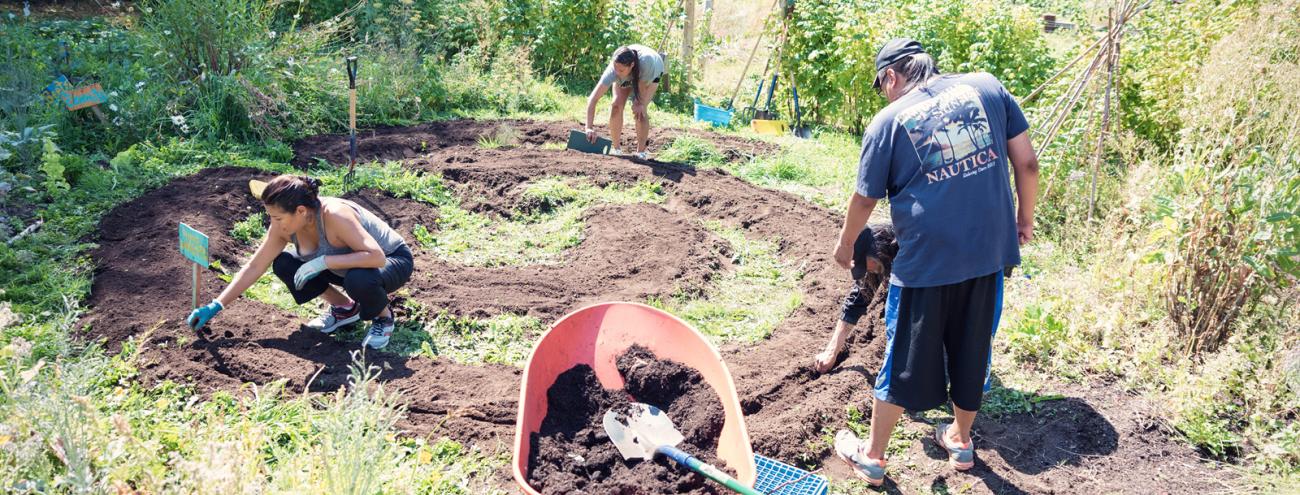
Interview: Eduardo Jovel, Margaret Moss, and Tabitha Robin on Indigenous Campus as a Living Lab
We sat with Eduardo Jovel, Margaret Moss, and Tabitha Robin to discuss their CLL-funded project. Eduardo Jovel is a Professor in the Faculty of Land and Food Systems at UBC, Margaret Moss is the Director of the First Nations House of Learning at UBC, and Tabitha Robin is an Assistant Professor at the Faculty of Land and Food Systems.
Jovel spoke about the Garden and its role in research: The name xʷc̓ic̓əsəm means “the place where we grow”- foods and medicines, relationships, but the land also grows us. We’re concerned with Indigenous food security, Indigenous land-based wellness and education, and Indigenous food sovereignty at the Garden.” These factors come together in an interdisciplinary manner to understand the meaning of wellness and share Indigenous approaches to wellbeing. In the last seventeen years, the Garden has become an interdisciplinary and multidimensional space that addresses the needs of Indigenous peoples, including spiritual, emotional, intellectual, and physical practices related to land access and land-based wellness.
Margaret Moss, Director of First Nations House of Learning, is also a Professor in the Faculty of Nursing. She has been working with Indigenous peoples’ health and wellness as a nurse for over 34 years. Moss added, “FNHL is about creating opportunities for ethical dialogue and mobilization, and this project increases UBC’s capacity to deliver Indigenous wellness programming in an interdisciplinary manner.”
The project aims to facilitate engagement for the UBC community, not just Indigenous students, staff, and faculty, through workshops and other activities aimed at Indigenous Wellness Programming. The Garden has a large community, including an interdisciplinary research cluster, with more than fifteen Indigenous faculty members, organizations, schools, and students. This community will be essential in delivering wellness workshops and activities.
Tabitha Robin discussed the approach to wellness in the research: “This project proposes an outlook to wellness from its most fulsome perspective and as a connection to the land; we will only be as healthy as the land and vice versa.”
Jovel added, “We take the two-eyes approach for all our work where we bring Western and Indigenous perspectives together to look for solutions to problems.”
Through their interdisciplinary, Indigenous and community-led approach, Jovel, Moss, and Robin are working towards a more fulsome understanding of wellness that incorporates Indigenous knowledge, worldviews, practices, and contemporary perspectives.